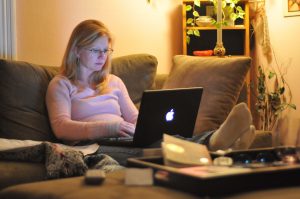
The University of Kentucky College of Education is hosting an online discussion, “Navigating Your Teens in Breonna Taylor’s America,” beginning 11 a.m. Thursday, Nov. 12.
Focused on empowering students and educators, the discussion will be streamed live on the College of Education YouTube channel. Participants are encouraged to submit questions via email at CollegeofEdQA@gmail.com.
The discussion is designed to offer guidance to youth as they search for justice while balancing school, work, friendships, family and their personal well-being. Panelists will answer questions, such as:
- What is the “arc of justice” and why does it take so long to get there? Will we ever?
- How do I focus on school while trying to process racial traumas?
- Why does it feel like some people don’t see my pain and stress?
- How do I find my voice and where does it fit in?
- How can teachers and school leaders embrace students during painful events, such as the Breonna Taylor decision?
The discussion will be moderated by Gregory Vincent, executive director of the college’s Education and Civil Rights Initiative in collaboration with the NAACP. The initiative is based in the Department of Educational Policy Studies and Evaluation, where Vincent is a professor. Panelists for this program will include:
- Tiffany D. Loftin, NAACP Youth and College Division national director;
- Candice Hargons, assistant professor, Department Educational, School, and Counseling Psychology;
- Cheryl Matias, professor, Department of Curriculum and Instruction;
- Kenneth Tyler, professor and chair, Department of Educational, School, and Counseling Psychology; and
- Carol Taylor Shim, director, UK’s Bias Incident Support Services.
The University of Kentucky is increasingly the first choice for students, faculty and staff to pursue their passions and their professional goals. In the last two years, Forbes has named UK among the best employers for diversity, and INSIGHT into Diversity recognized us as a Diversity Champion three years running. UK is ranked among the top 30 campuses in the nation for LGBTQ* inclusion and safety. UK has been judged a “Great College to Work for” three years in a row, and UK is among only 22 universities in the country on Forbes’ list of “America’s Best Employers.” We are ranked among the top 10 percent of public institutions for research expenditures — a tangible symbol of our breadth and depth as a university focused on discovery that changes lives and communities. And our patients know and appreciate the fact that UK HealthCare has been named the state’s top hospital for four straight years. Accolades and honors are great. But they are more important for what they represent: the idea that creating a community of belonging and commitment to excellence is how we honor our mission to be not simply the University of Kentucky, but the University for Kentucky.




























